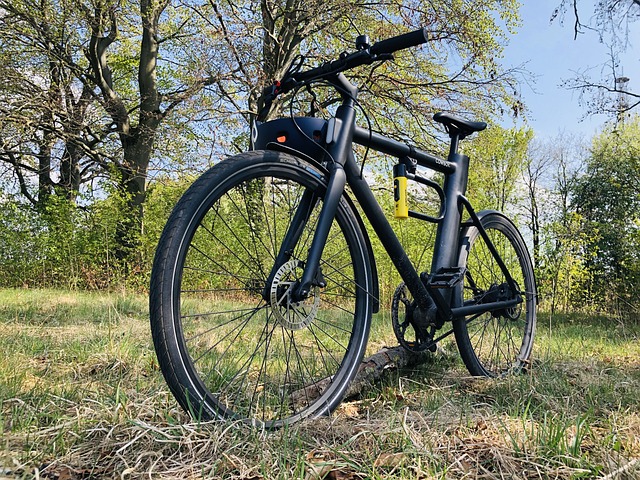Who’s at Fault for Accidents Involving Electric Bicycles?
Electric bicycles (e-bikes) are growing in popularity, especially in urban areas across the United States. As more people use e-bikes as a reliable mode of transportation, states have been forced to enact specific laws that dictate their legal use and the responsibilities of the people who ride them. This raised many legal questions and concerns about their use, and they have already been involved in several personal injury cases in New Jersey, both in terms of the people hitting pedestrians while riding them and e-bike riders being struck by other vehicles.
Have you been injured while riding (or by a person riding) an e-bike? It’s important to know your rights and some of the basic laws that govern e-bike in New Jersey.
The Classes of E-Bike According to New Jersey Law
New Jersey law classifies e-bikes into three categories based on how they are constructed and how they operate. Each of these e-bike categories comes with specific regulations that govern their use. More information on e-bikes can be found in New Jersey Revised Statutes Title 39 – Motor Vehicles and Traffic Regulation.
The three classes of e-bikes are:
- Class 1: low-speed pedal-assist e-bikes that use a motor to provide assistance to riders while they are pedaling. Assistance is stopped when the bike reaches about 20 mph.
- Class 2: low-speed throttle-assisted e-bikes that use a motor to propel the bike without pedaling but do not normally exceed 20 mph.
- Class 3: commonly referred to as mopeds, these motorized bicycles can generally reach higher speeds and are powered by gas or electricity. These bikes do not have pedals and are subject to more regulations.
New Jersey Laws by Category of E-Bike
In many respects, e-bikes are treated similarly to traditional bicycles rather than motor vehicles. However, riders must follow the same traffic laws and regulations that apply to bicycles. Understanding the type of e-bike you have is important because there are certain laws that apply to each type of bike. These include:
- Class 1 and Class 2 E-Bikes: riders do not need a driver’s license, registration, or insurance, to operate Class 1 and 2 e-bikes. These types of bikes are allowed on any roadway, bike path, or trail where regular bicycles are permitted, and they are generally treated the same as normal bicycles. Riders under 17 are required to wear helmets.
- Class 3 E-Bikes: a person must be at least 15 years old to ride a Class 3 e-bike, and helmets are required for all riders and passengers. These types of e-bikes are prohibited from being ridden on bike paths or trails unless the path is adjacent to a roadway or specifically allows Class 3 e-bikes.
Regardless of the class, there are several overarching laws for e-bikes and e-scooters in New Jersey:
- E-bikes riders must adhere to traffic laws applicable to bicycles.
- E-bike riders have the same rights and responsibilities as traditional bicycle riders.
- All e-bikes must be equipped with a white front light, red rear light, and reflectors if used at night.
- Unlike motor vehicles, e-bike riders are not required to carry insurance in New Jersey.
Make sure to check with your local city government to ensure they do not have any specific ordinances involving the use of e-bike within the city limits.
Accidents Involving E-Bikes
Determining fault for accidents involving e-bikes follows the same principles as many other traffic accidents. Fault can be attributed to the e-bike rider, the driver of the other vehicle, or both, depending on the circumstances and adherence to traffic laws. In accidents involving pedestrians, fault can also be attributed to the pedestrian or rider of the e-bike, depending on the accident’s circumstances.
E-bike riders have the same rights as traditional cyclists. They are entitled to use bike lanes and roadways and must be treated with the same respect as other vehicle operators. E-bike riders must follow traffic laws, including obeying traffic signals, signs, and yielding the right of way when required. Failure to adhere to these laws can impact fault determination in an accident.
Remember that New Jersey follows a comparative negligence rule, which means that if you are partially at fault for the accident, your compensation may be reduced by your percentage of fault. However, if you are more than 50% at fault, you cannot recover damages.
Have You Been Injured in an E-Bike Accident?
Whether you are an e-bike rider or someone who has been involved in an accident with an e-bike, knowing your rights and responsibilities can make a significant difference in how you handle the situation. If you have been catastrophically injured, the personal injury lawyers at Eichen Crutchlow Zaslow can help you navigate the complexities of your claims, ensuring you receive the justice you deserve. Since the prevalence of e-bikes is a relatively new phenomenon, you’ll need attorneys who are experienced working in these types of cases.
We are here to help you every step of the way. Get in touch with our team for a free case evaluation today.

Eichen Crutchlow Zaslow, LLP has purposely remained small in size, because it is important to us that we get to know our clients and their needs. Larger NJ injury firms may churn out case after case, but that’s not how we operate. Partners Barry Eichen, William Crutchlow, and Daryl Zaslow have created a firm with the resources to handle complex litigation, and a team that takes your case personally.
Find out more about Eichen Crutchlow Zaslow, LLP

